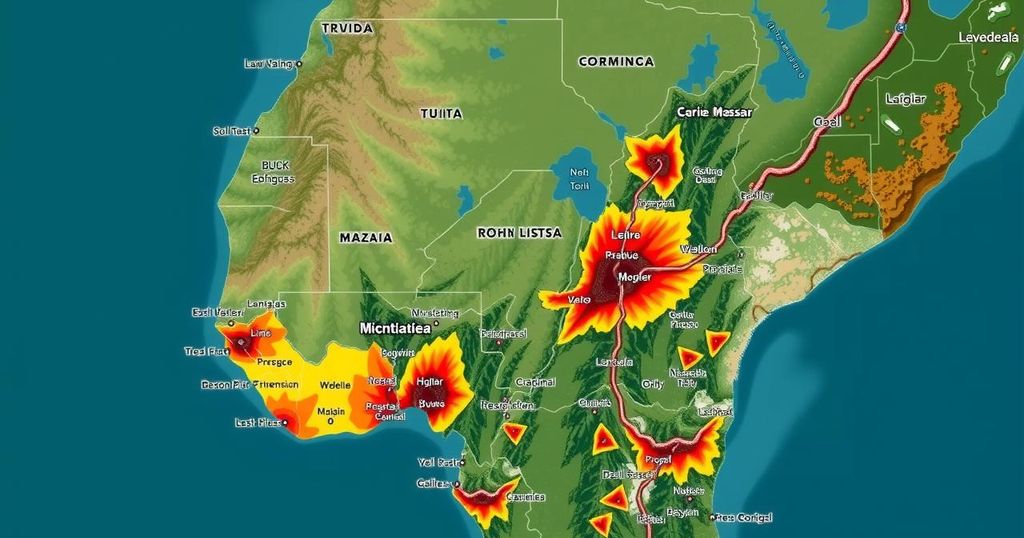The Country Climate and Development Report underscores the vital role of improved institutional and financial systems in achieving climate resilience and sustainable development in Guinea-Bissau. The country faces significant challenges such as high poverty, political instability, and climate threats to vulnerable communities. The report recommends immediate climate-smart initiatives and strategic governance improvements to align development goals with climate action.
On November 4th, 2024, the Country Climate and Development Report (CCDR) was introduced, emphasizing the critical need for enhanced institutional and financial frameworks to bolster climate resilience and sustainable development in Guinea-Bissau. Despite its abundance of natural resources, the country grapples with substantial challenges including pervasive poverty, political instability, and a heavy reliance on cashew nut exports, alongside one of the lowest electricity access rates in West Africa. The adverse effects of climate change significantly threaten vulnerable populations in coastal regions reliant on agriculture and fishing, exacerbating existing developmental issues. Rosa Brito, the World Bank Group’s Resident Representative in Guinea-Bissau, highlighted the report’s importance, stating, “The Country Climate and Development Report provides Guinea-Bissau with a strategic framework to align development goals with climate action, promoting positive transformations and sustainable growth.” Good governance, political stability, and a conducive business environment are deemed essential in facilitating sustainable growth for the nation. To effectively address climate vulnerability, the report advocates for an integrated strategy combining governance enhancements, economic diversification, the preservation of natural resources, development of human capital, and sustainable investments in agriculture and infrastructure. Community-driven initiatives are expected to unlock long-term benefits and mitigate climate risks quickly. The CCDR delineates immediate priorities for the forthcoming three years, which include implementing climate-smart agricultural methods to enhance productivity while conserving land and water, regenerating forests, expanding energy accessibility, and strengthening knowledge systems. As such, the report asserts that climate action congruently supports the nation’s development objectives, fostering a resilient approach towards the global climate crisis, ultimately facilitating a pathway to robust, sustainable, and equitable growth.
Guinea-Bissau, located in West Africa, possesses the greatest amount of natural capital per capita in the region. However, it faces formidable challenges that hinder development progress, including alarming poverty rates, political turbulence, and economic limitations, particularly demonstrated by its over-reliance on a single agricultural commodity, the cashew nut. Moreover, the country grapples with low electricity access, compounding the vulnerabilities faced by its population. Climate change presents an urgent threat, especially to communities situated in low-lying coastal regions, prominently impacting those dependent on agriculture and fisheries while straining already inadequate infrastructure. In response, focused efforts on improving governance and establishing a stable economic environment are seen as essential to spur sustainable advancement and resilience against climate-induced adversities.
The Country Climate and Development Report underscores the imperative of integrating climate resilience with developmental strategies in Guinea-Bissau. Strengthening governance, enhancing economic diversity, and promoting sustainable practices are critical for mitigating climate risks and improving the quality of life for its citizens. By aligning climate action with development ambitions, Guinea-Bissau can safeguard its future against the escalating challenges posed by climate change while ensuring human and environmental well-being.
Original Source: www.miragenews.com






